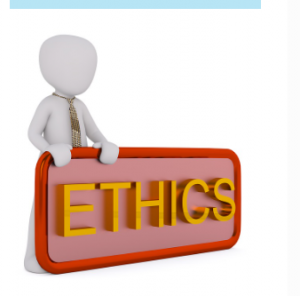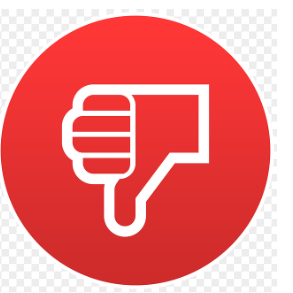Role of Ethics & Values in SALES!

 About this article?
About this article?
- The article explores the criticality and role of ethics and values in the sales process. We aim to establish the role of basic honesty and integrity in fostering long-term customer trust, leading to improved sales and professional success. So especially given the best & ethical sales practices, like giving autonomy to the customer to make their decision, or avoiding manipulative tactics, and building a value-based relationship
- Now in contrast to ethical dealings in sales, there are many times dishonest selling, which may include misinterpretation of things to suit oneself. Hiding product problems or flaws or pressing or manipulating the client to buy. Highlighting to show the long-term damage of such behavior is indicated. When the right things are done consistently, with good sustainability and credibility, naturally the customer loyalty builds up. The salesperson is able to earn self-respect as well.
- All of this is supported by research based on how to sell adaptively. You can try it for FREE to help you make a lot more sales. Below this article is the link for FREE trials and benefits!
 1. What are ethics & values in sales?
1. What are ethics & values in sales? - So the next question is, what are ethics and values? Values in sales refer to moral principles and beliefs that suggest the proper behavior while doing sales-related interactions. Like between the seller and the buyer. It should include transparency in communication, honesty in communication, plus integrity & fairness. So also respect for the customers. So the right kind of ethical salesperson would aim to understand the customer’s needs genuinely first and then offer the solutions that add value to the customer. Rather than simply suggesting a product to meet his basic targets. So the basic foundation of ethical sales is trust, and that can be built by consistent, fair, and honest communication.
- So the value system in the sales extends beyond simply honoring one’s sales commitments. It includes respecting the customer’s confidentiality and avoiding being manipulative while selling something. It’s also about respecting the customer and being accountable after the sale is over. So a value-driven salesperson looks at the long-term relationship rather than only the short-term profits or speed of sales. So here the basic decision-making is guided not only by immediate profits or gains but instead by long-term benefits. So this reflects the character of the sales guy and the company’s reputation well.
- So in a general sense, sales ethics include proper fairness in pricing and not making any false claims. So again, the product or the solution limitations have to be indicated explicitly and clearly. Additionally, one has to honor the refund and warranty commitments as well. Ethical sales help in increasing the company’s credibility and help in more referrals & repeat business. Also, long-term customer retention is there. So without a strong ethical foundation, the salesperson cannot build trust and damage the brand image created.
 2. Ethical Dealings and Cheating in Sales
2. Ethical Dealings and Cheating in Sales - So ethical dealings basically have a method of looking at long-term success and building up credibility rather than looking at instant gains or profits or gratification. In ethical dealings, sales should be such that the customer is always informed and suggested to be fair and honest about all facts related to the sale. There is after-sales support for sales as well. Also, the buyer’s autonomy and decision-making are supported here. Again, the hard-selling tactics are avoided, and giving a bait to buy is also avoided. It’s not that the customers’ ignorance about information is being taken advantage of in the sales process.
- So cheating in sales, in contrast, could mean manipulating data or hiding the product limitations or misrepresenting the performance of how the product or the solution functions, or the limitations of the same. Pressure tactics of force while purchasing—all these have to be avoided. So this could amount to fraud as well. This could include, say, exaggerating the features or overpromising the delivery timelines or even saying something wrong about the competitors. Cheating may win in the short term, but in the long term, reputation gets harmed, and one can get into legal trouble as well, and the company may go down in image.
- So when we do ethical dealings, we need to protect the buyer and seller both in the process. Industries where there are long sales cycles or repeat customers are expected and high trust is expected—doing ethical business is the best way to handle it. This especially applies to financial products or real estate or pharmacies as well. Cheating at times seems to win initially because it will not be tested or noticed. But negative word of mouth and disengagement among colleagues in the team can also happen with these practices; the overall trust and confidence go down.
 3. When to Walk Away from Business in Sales (Unethical Sales)
3. When to Walk Away from Business in Sales (Unethical Sales) - So the salesperson, to maintain his integrity or personal values, can walk away from an organization that forces him to compromise on the same. So what are the compromises that a salesperson could face, such as misleading the customer or misrepresenting the products or practices? So also unethical practices like bribery or discounts that are not accounted for. Helps to preserve the salesperson’s integrity if he walks away in time.
- So ethical boundaries are even more important when the customers are more vulnerable, like senior citizens or new buyers. Or people who are in distress and trying to buy. Also if it is the case when the business or the client puts pressure to hide information. So it’s better to walk away without the commission or quota and not compromise on professional integrity in such situations.
- At times the sales professionals can have internal pressure from their manager to achieve the targets at any cost. So due to pressure, the salesperson has to compromise on the sales with things. But one should have the courage to say NO. So one also has to forego the benefit of a bonus or maybe the risk of losing a job to maintain one’s integrity. Managing the integrity is very important. Selling should feel genuine, and the salesperson should try to meet the customer’s needs better.
 4. What is Dishonest Selling?
4. What is Dishonest Selling? - Now, what is dishonest selling? It’s where the salesperson misleads or deceives the customer. That is just to make the sales happen. This could be intentional in the form of giving false benefits of the product or solution. It could also be by falsely disclosing incorrect benefits and not giving the limitations of the product or solution. So also incorrect information about product or solution availability or exaggeration of warranties or hiding the actual cost is dishonest selling. So making manipulative emotional appeals while selling is also not good for integrity and values. Because at the end of the day, it will break the trust between the buyer and the seller.
- Now in the marketplace generally the dishonest selling is cloaked or hidden under a polished sales pitch or the persuasive charm of the sales guy. It makes the customer decide to have the full information. So this is a dishonest view of dealing with the sales. Also, like, trying to sell a feature that has no added value is a dishonest thing to do. Again, pushing the customer towards a suitable plan is unethical. The damage or impact of dishonest selling often goes unnoticed until the customer faces consequences like the product failing in certain situations or delayed delivery or even unexpected expenses in the process.
- So overall dishonest selling affects the company culture and reduces the brand trust and does not give a good message to the fellow employees. This is because the other employees will also try to cut corners to get rewards faster by cheating! It can lead to severe issues or conflicts and customer backlash as well. Now, as we know, the honest salesperson will always try to get more trust and become more loyal. So that they get repeat business and get references as well for future business. So he will never try for fast or hasty sales.
 5. Evaluate Your Values in Sales
5. Evaluate Your Values in Sales - Now one needs to evaluate or reflect upon the basic guiding principles for the day-to-day sales decisions. If I sold the same thing to myself, would I buy it? So that helps to clarify whether one is selling with proper integrity and honesty and not simply going after numbers in sales. It is clarity in values that is a very good reference point in very complex or, maybe at times, tempting sales situations.
- So getting the feedback from the clients and peers helps to get your clients’ trust. They return to you and refer you to others. It means that you are giving a proper value to the customer and doing ethical selling. And one needs to introspect on the sales behavior that is under pressure. Also should not deviate from the basics. Especially when one is trying to hit larger targets. And focus has to be kept that while doing sales, the failures of the system should not be hidden.
- So the salesperson has to see that if his system is an ethical system & is in harmony with a company’s value systems. If the environment rewards integrity in the long term & trust-building or not. So then it is much easier for the salesperson to stay with the company and focus on the values. One needs to see if the culture of the company itself promotes shortcuts and celebrates aggressive & deceptive tactics. As then the alignment of the ethics would not be great. Like someone selling peanuts on the train, the core focus is somehow to sell the maximum number of peanuts without caring much for integrity, etc. One may want to reconsider their job and the methods they use for selling. It is important to understand what kind of legacy you are creating. So one needs to safeguard one’s integrity and self-esteem in the process. Respect for core values, improved practices, and ethical methods must be adopted to achieve better results in the long run. Introspection and reflection on one’s actions & aligning one’s actions with the ethical or better organizational goals are much needed. And the professional salesperson has to ensure that their work is not only profitable but also based on principles and is well-respected by the customers in the long run.

- TRY SALES Enhancer for FREE Now!!!

 Please SELECT only the TRIAL REPORT option and NOT the DEMO Report as given in the image above on the form
CHECK TRIAL SALES & Customer Relationships Enhancer report CLICK HERE
For paid reports , you can kindly contact us at abioanalytics@gmail.com
OR simply fill up the form:
Please SELECT only the TRIAL REPORT option and NOT the DEMO Report as given in the image above on the form
CHECK TRIAL SALES & Customer Relationships Enhancer report CLICK HERE
For paid reports , you can kindly contact us at abioanalytics@gmail.com
OR simply fill up the form:
 Other SALES ARTICLES
Other SALES ARTICLES 









